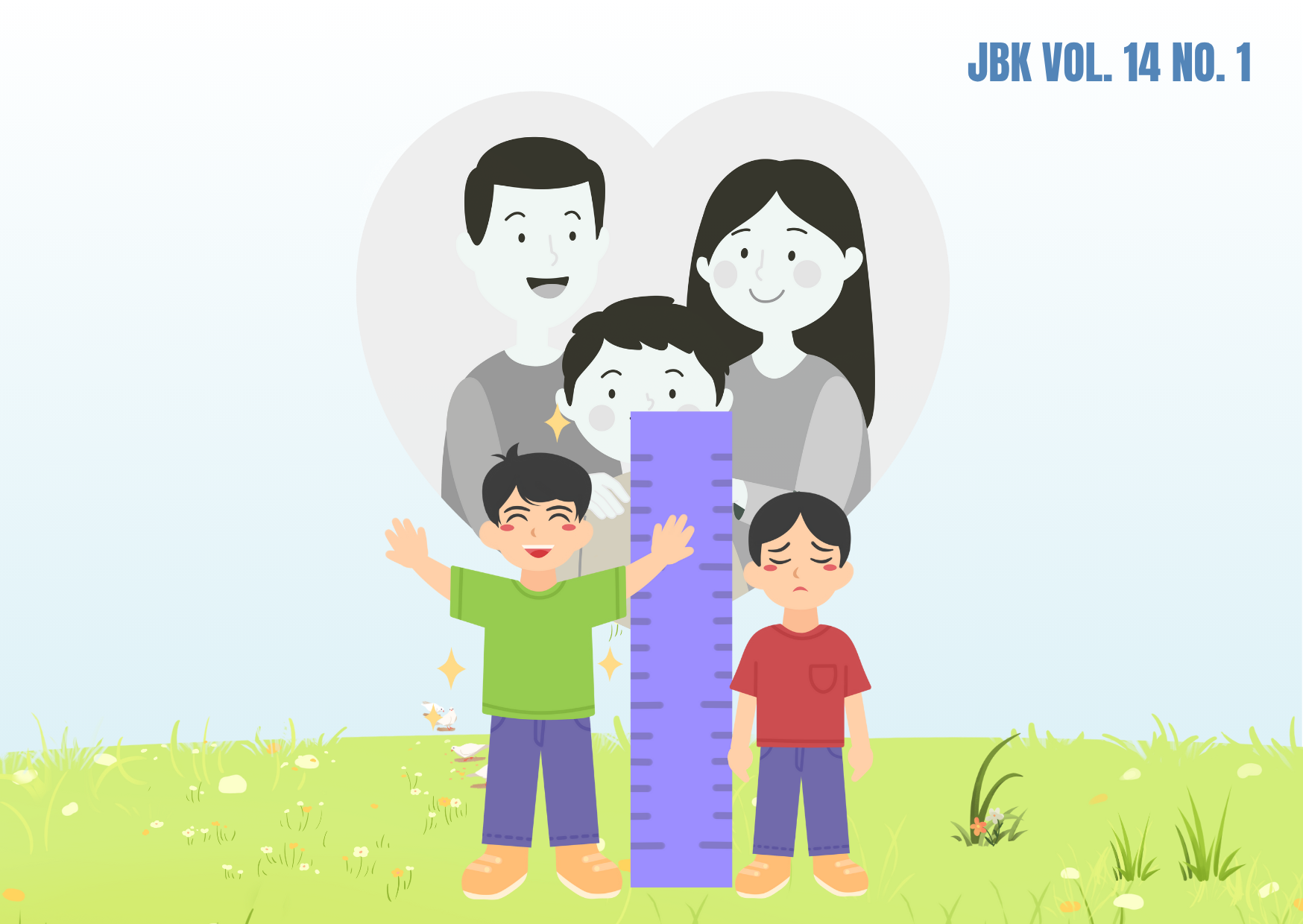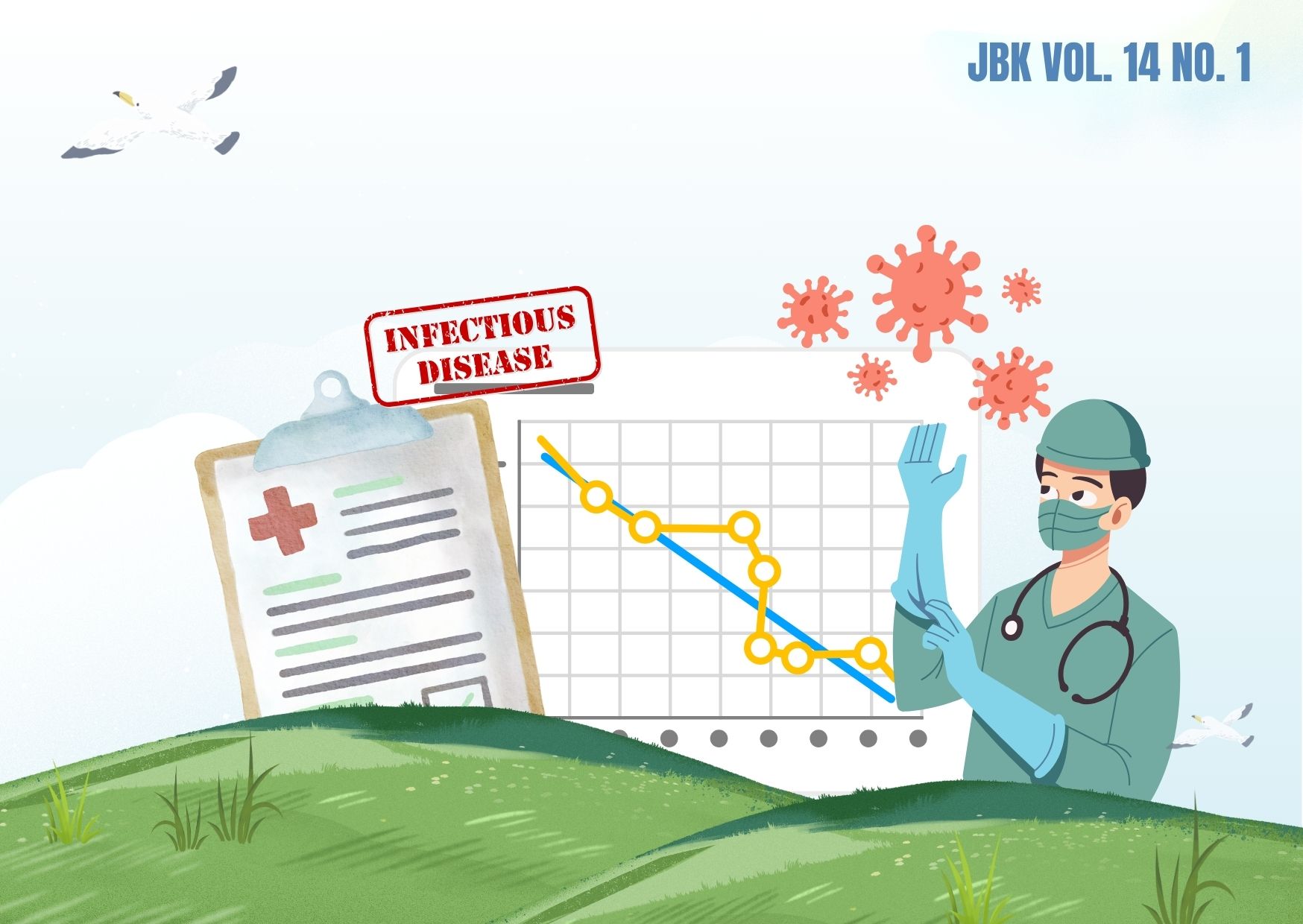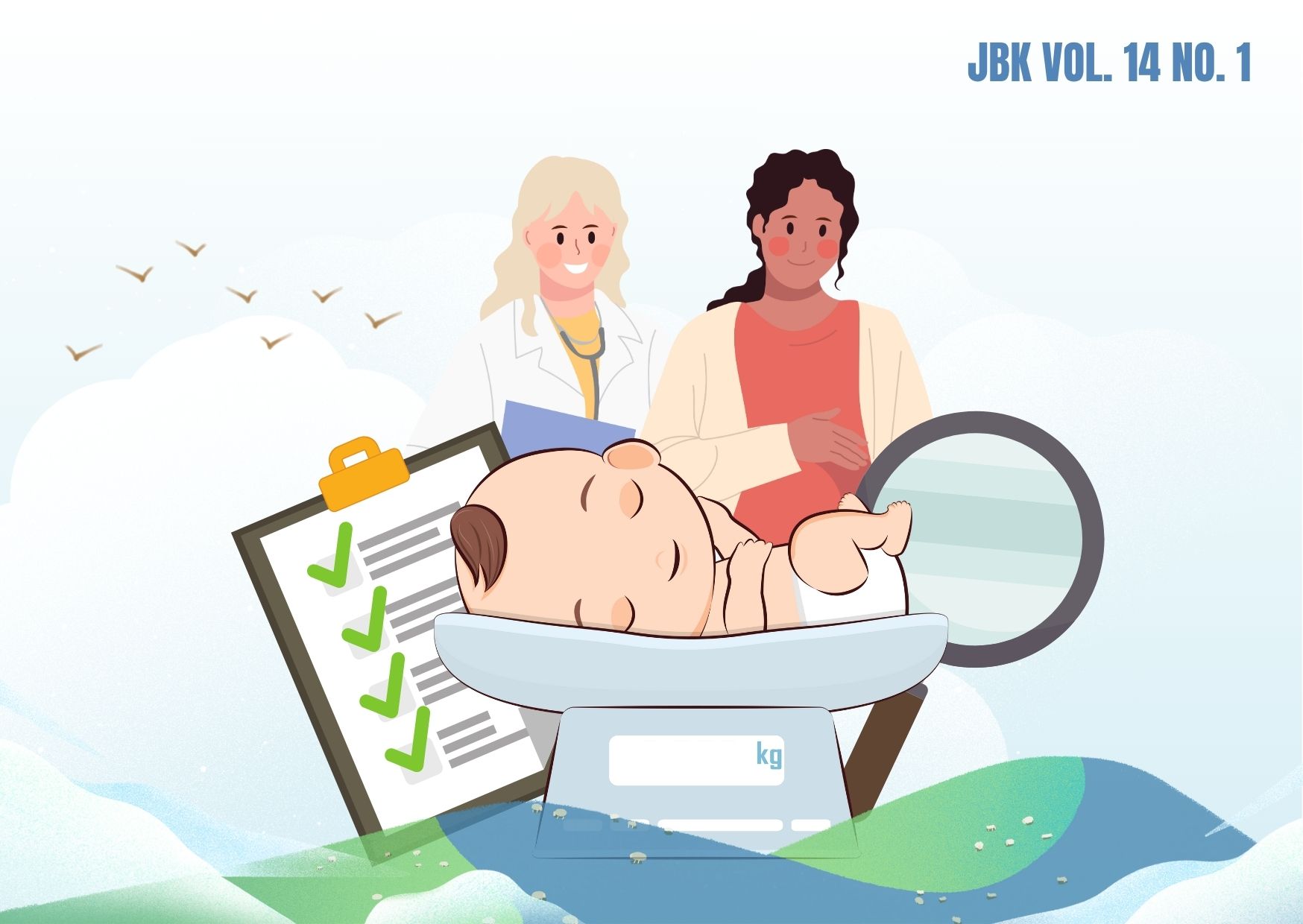WOMEN'S AUTONOMY AND UNINTENDED PREGNANCY: AN IDHS 2017 DATA ANALYSIS

Downloads
Unintended pregnancy impacts hugely on maternal and child health. This study aimed to examine the influence of women's autonomy on unintended pregnancies including unwanted and mistimed pregnancies. Using the Indonesia Demographic and Health Survey (IDHS) 2017, this study analyzed 12,624 currently married women who had birth within five years preceding the survey. Women's autonomy was constructed from several variables related to women's decision on obtaining health care, visiting family, and spending large household purchase. The result of logistic regression analysis showed that women's autonomy affected significantly on unintended pregnancy after controlling other variables. However, it implied a negative correlation in which autonomous women were 1.3 more likely to experience unintended pregnancy than their counterparts. Both parity and birth interval showed the biggest influences on unintended pregnancy; the odds ratios were 2.7 and 3.1 respectively. Women who married at age 21 years and above, lived in rural areas and decided the number of children to have with husbands tended to have a lower risk facing an unintended pregnancy. Improving IEC and counseling about family planning and reproductive health is expected to increase couples' knowledge. Therefore, the decisions on the number of children and contraceptive use can be made jointly and unintended pregnancy will be prevented.
Bearak J, Popinchalk A, Ganatra B, Moller A, Tunçalp Ö, Beavin C, et al. Unintended Pregnancy and Abortion by Income, Region, and the Legal Status of Abortion: Estimates from A Comprehensive Model for 1990-2019. Lancet Glob Heal [Internet]. 2020;8(9):e1152–e1161. Available from: https://doi.org/10.1016/S2214-109X(20)30315-6
Thapa DK, Niehof A. Women's Autonomy and Husband's Involvement in Maternal Health Care in Nepal. Soc Sci Med [Internet]. 2013;93(September):1–10. Available from: http://dx.doi.org/10.1016/j.socscimed.2013.06.003
Rahman M. Women's Autonomy and Unintended Pregnancy Among Currently Pregnant Women in Bangladesh. Matern Child Health J [Internet]. 2012;16(6):1206–1214. Available from: https://doi.org/10.1007/s10995-011-0897-3
Teshome FT, Hailu AG, Teklehaymanot AN. Prevalence of Unintended Pregnancy and Associated Factors Among Married Pregnant Women in Ganji Woreda, West Wollega Oromia Region, Ethiopia. Sci J Public Heal [Internet]. 2014;2(2):92–101. Available from: https://www.sciencepublishinggroup.com/journal/paperinfo.aspx?journalid=251&doi=10.11648/j.sjph.20140202.18
Abada T, Tenkorang EY. Women's Autonomy and Unintended Pregnancies in the Philippines. J Biosoc Sci [Internet]. 2012;44(6):703–718. Available from: https://doi.org/10.1017/S0021932012000120
Singh A, Singh A, Mahapatra B. The Consequences of Unintended Pregnancy for Maternal and Child Health in Rural India: Evidence from Prospective Data. Matern Child Health J [Internet]. 2013;17(April):493–500. Available from: https://doi.org/10.1007/s10995-012-1023-x
Anggraini K, Wratsangka R, Bantas K, Fikawati S. Faktor-Faktor yang Berhubungan dengan Kehamilan Tidak Diinginkan di Indonesia. Promot J Kesehat Masy [Internet]. 2018;8(1):27–37. Available from: https://doi.org/10.31934/promotif.v8i1.227
Hardee K, Eggleston E, Wong EL, Irwanto, Hull TH. Unintended Pregnancy and Women's Psychological Well-Being in Indonesia. J Biosoc Sci [Internet]. 2004;36(5):617–626. Available from: https://doi.org/10.1017/S0021932003006321
Jaeni N, McDonald P, Utomo ID. Determinants of Unintended Pregnancy Among Ever-Married Women in Indonesia: An Analysis of the 2007 IDHS [Internet]. Canberra; 2009. Available from: https://catalog.ihsn.org/citations/5016
Saptarini I, Suparmi S. Determinan Kehamilan Tidak Diinginkan di Indonesia (Analisis Data Sekunder Riskesdas 2013). J Kesehat Reproduksi [Internet]. 2016;7(1):15–24. Available from: https://doi.org/10.22435/kespro.v7i1.5096.15-24
Eggleston E. Determinants of Unintended Pregnancy Among Women in Ecuador. Int Fam Plan Perspect [Internet]. 1999;25(1):27–33. Available from: https://doi.org/10.2307/2991899
Dixit P, Ram F, Dwivedi LK. Determinants of Unwanted Pregnancies in India Using Matched Case-control Designs. BMC Pregnancy Childbirth [Internet]. 2012;12:1–12. Available from: https://doi.org/10.1186/1471-2393-12-84
Tebekaw Y, Aemro B, Teller C. Prevalence and Determinants of Unintended Childbirth in Ethiopia. BMC Pregnancy Childbirth [Internet]. 2014;14(1):1–9. Available from: https://doi.org/10.1186/1471-2393-14-326
Kumar M, Jyoti M, Aruna P, Poddar A, Dhariwal V, Shailendra K. Unintended Pregnancy among Low Income Urban Married Women in India. J Obstet Gynecol India [Internet]. 2012 Feb;62(1):52–56. Available from: https://doi.org/10.1007/s13224-012-0157-5
Goto A, Yasumura S, Reich MR, Fukao A. Factors Associated with Unintended Pregnancy in Yamagata, Japan. Soc Sci Med [Internet]. 2002;54(7):1065–1079. Available from: https://doi.org/10.1016/S0277-9536(01)00081-8
Bishwajit G, Tang S, Yaya S, Feng Z. Unmet Need for Contraception and Its Association with Unintended Pregnancy in Bangladesh. BMC Pregnancy Childbirth [Internet]. 2017 Jun;17(1):1–9. Available from: https://doi.org/10.1186/s12884-017-1379-4
Erol N, Durusoy R, Ergin I, Dner B, Çiçekliolu M. Unintended Pregnancy and Prenatal Care: A Study from A Maternity Hospital in Turkey. Eur J Contracept Reprod Heal Care [Internet]. 2010;15(4):290–300. Available from: https://doi.org/10.3109/13625187.2010.500424
Savaş N, Ä°nandı T, Arslan E, Peker E, Durmaz E, Erdem M, et al. Unintended Pregnancies, Induced Abortions and Risk Factors in Women Admitted to Hospitals due to Birth or Abortion in Hatay. Turkish J Public Heal [Internet]. 2017;15(2):85–95. Available from: https://doi.org/10.20518/tjph.341158
Aly Nor S, Abel – raoof Amasha H, Salah Salama N, Abdel- rahman Osman Abdel-haleem S. Prevalence of Unintended Pregnancy and Associated Factors in Port-Said City. Port Said Sci J Nurs [Internet]. 2019;6(1):101–120. Available from: https://doi.org/10.21608/pssjn.2019.34039
Geda NR, Lako TK. A Population Based Study on Unintended Pregnancy among Married Women in A District in Southern Ethiopia. J Geogr Reg Plan [Internet]. 2011;4(7):417–427. Available from: https://academicjournals.org/article/article1381843891_Geda and Lako.pdf
Ali SA, Ali SA, Khuwaja NS. Determinants of Unintended Pregnancy Among Women of Reproductive Age in Developing Countries: A Narrative Review. J Midwifery Reprod Heal [Internet]. 2016;4(1):513–521. Available from: https://doi.org/10.22038/jmrh.2016.6206
Acharya P, Gautam R, Aro AR. Factors Influencing Mistimed and Unwanted Pregnancies among Nepali Women. J Biosoc Sci [Internet]. 2016;48:249–266. Available from: https://doi.org/10.1017/S0021932015000073
Mohamed EAEB, Hamed AF, Yousef FM., Ahmed EA. Prevalence, Determinants, and Outcomes of Unintended Pregnancy in Sohag District, Egypt. J Egypt Public Health Assoc [Internet]. 2019;94(1):1–9. Available from: https://doi.org/10.1186/s42506-019-0014-9
Beyene GA. Prevalence of Unintended Pregnancy and Associated Factors Among Pregnant Mothers in Jimma Town, Southwest Ethiopia: A Cross Sectional Study. Contracept Reprod Med [Internet]. 2019 Dec;4(1):1–8. Available from: https://doi.org/10.1186/s40834-019-0090-4
Yusof M, Abdul Samad A, Omar M, Ahmad NA. Unplanned Pregnancy and Its Associated Factors. Glob J Health Sci [Internet]. 2018;10(8):132–142. Available from: https://doi.org/10.5539/gjhs.v10n8p132
Grindlay K, Dako-Gyeke P, D. Ngo T, Eva G, Gobah L, T. Reiger S, et al. Contraceptive Use and Unintended Pregnancy among Young Women and Men in Accra, Ghana. PLoS One [Internet]. 2018 Jul;13(8):1–13. Available from: https://doi.org/10.1371/journal.pone.0201663
Jones J, Mosher W, Daniels K. Current Contraceptive Use in the United States, 2006-2010, and Changes in Patterns of Use Since 1995 [Internet]. Maryland; 2012. Available from: https://pubmed.ncbi.nlm.nih.gov/24988814/
Gipson JD, Koenig MA, Hindin MJ. The Effects of Unintended Pregnancy on Infant, Child, and Parental Health: A Review of the Literature. Stud Fam Plann [Internet]. 2008;39(1):18–38. Available from: https://doi.org/10.1111/j.1728-4465.2008.00148.x
Link CF. Spousal Communication and Contraceptive Use in Rural Nepal: An Event History Analysis. Stud Fam Plann [Internet]. 2011;42(2):83–92. Available from: https://doi.org/10.1111/j.1728-4465.2011.00268.x
Hameed W, Azmat SK, Ali M, Sheikh MI, Abbas G, Temmerman M, et al. Women's Empowerment and Contraceptive Use: The Role of Independent versus Couples' Decision-Making, from A Lower Middle Income Country Perspective. PLoS One [Internet]. 2014;9(8):1–9. Available from: https://doi.org/10.1371/journal.pone.0104633
Copyright (c) 2022 Jurnal Biometrika dan Kependudukan

This work is licensed under a Creative Commons Attribution-NonCommercial-ShareAlike 4.0 International License.
Copyright©2022 Jurnal Biometrika dan Kependudukan (Journal of Biometrics and Population)
This work is licensed under a Creative Commons Attribution-NonCommercial-ShareAlike 4.0 International License.
1. Copyright of all journal manuscripts is held by the Jurnal Biometrika dan Kependudukan.
2. Formal legal provisions to access digital articles of the electronic journals are subject to the provision of the Creative Commons Attribution-ShareAlike license (CC BY-NC-SA), which means that Jurnal Kesehatan Biometrika dan Kependudukan to keep, transfer media/format, manage in the form of databases, maintain, and publish articles.
3. Published manuscripts both printed and electronic are open access for educational, research, and library purposes. Additionally, the editorial board is not responsible for any violations of copyright law.



































